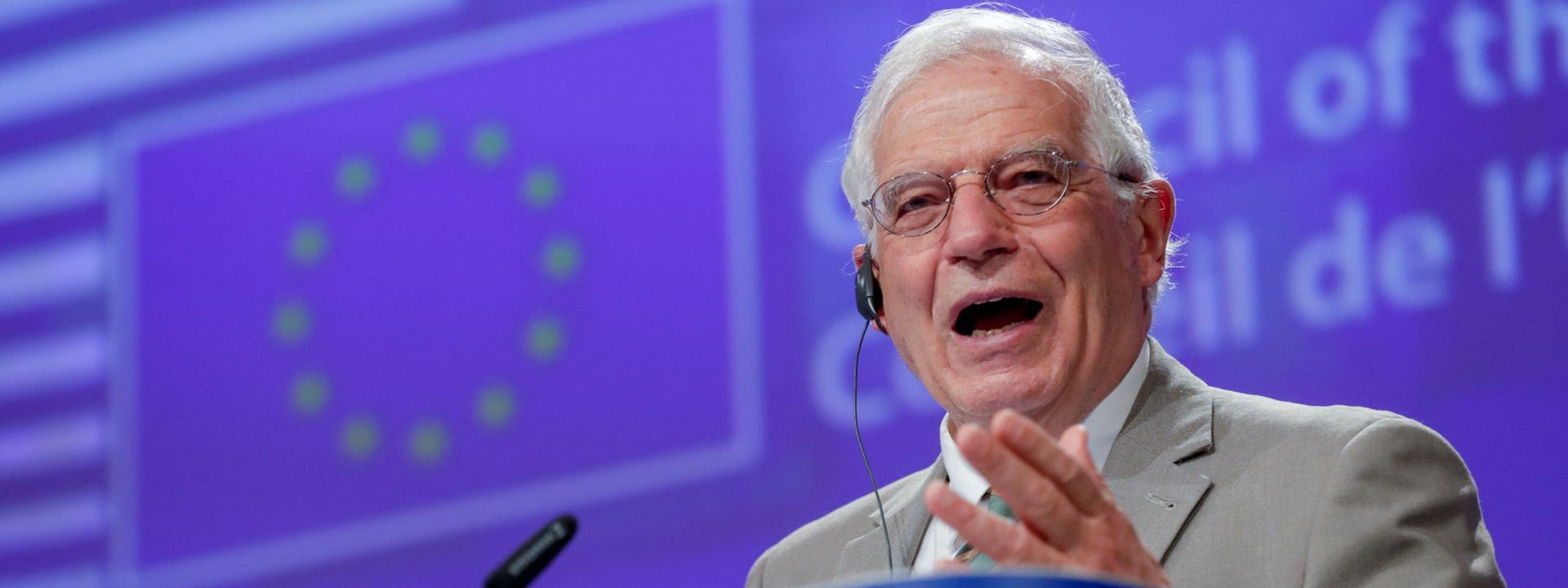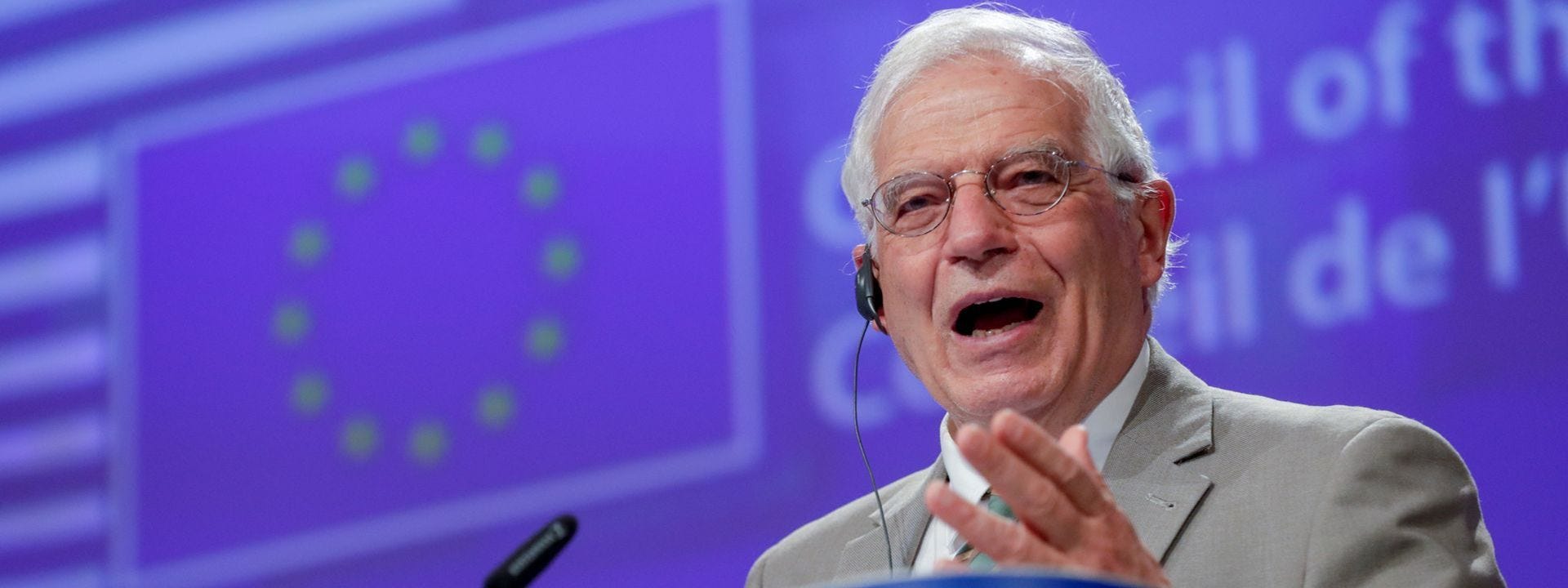
Establishing a red line is critical for preserving the credibility of Europe’s anti-disinformation efforts

On April 24, The New York Times reported that the European Union had softened its report on COVID-19 related disinformation following strong pressure from Beijing. The report — which had been mentioned by the Brussels edition of Politico prior to publication — was intended to highlight the role of Chinese propaganda sources in spreading disinformation related to the novel coronavirus. According to sources and internal emails seen by The New York Times, several E.U. officials from the European External Action Service (EEAS, Europe’s diplomatic service) ordered the softening of the report’s allegations against China after Chinese officials objected.
The story was soon corroborated by Reuters, Politico, and South China Morning Post (and a reporter from the German newspaper BILD also worked on the story, but opted not to publish in light of the EEAS’s denials that E.U. officials succumbed to pressure from China). Each of these outlets mentioned multiple sources in the EEAS, and some also referred to the internal correspondence. SCMP added that Beijing’s threats provoked fear in E.U. officials that China would withhold medical supplies needed for Europe’s fight against COVID-19 if the report was published.
The press department of the EEAS has changed its version of the story throughout the several days of controversy, claiming for days that no report was about to be released, but finally publishing a public version of the report. This, coupled with the internal emails quoted in multiple articles that directly contradict the EEAS’s denials, cast into question the reliability of EEAS’s official statement.
The E.U. foreign policy chief Josep Borrell did not exactly dispel the doubts. In the hearing of the foreign affairs committee in the European Parliament a few days after the NYT article appeared, he claimed that there were two different reports (contradicting his own press service), and that no watering down happened (contradicting the conversations quoted by the NYT and other outlets). As one liberal MEP said, the “explanation doesn’t really convince me.” Another high-ranking official from the EEAS also denied bowing to Chinese pressure, but admitted that some changes were made because of doubts over some of the findings, which seems to contradict the statements that no changes were made following Chinese pressure.
The case shows us one important pattern of behavior among information aggressors that policymakers would do well to recognize : those who sow disinformation not only spread lies; they also try to influence those who work to uncover and expose them.
The “4 Ds of Disinformation” framework authored by DFRLab Non-Resident Senior Fellow Ben Nimmo is useful in conceptualizing this behavior. Disinformers dismiss criticism, distort the facts, and distract the target audience by spreading often contradictory stories. But they also try to dismay: intimidate their opponents. In other words, if you talk about my disinformation activities, there will be undesirable consequences for you, they threaten.
To borrow terminology from another researcher, Keir Giles: some aspects of information warfare are more visible than others. There are offensive measures that we can perceive, e.g., election interference or the annexation of Crimea. But there are also more subtle efforts that nonetheless serve to prime the target for an all-out informational offensive. These efforts attempt to create a “permissive environment,” where the debate going on in the target audience is framed in a way that is beneficial for the information aggressors. In one example provided by Giles, imagine a targeted country fearing that if it went ahead with a scheduled military exercise, it could be seen as provocation against Russia. In other words, influence campaigns attempting to dismay a country undermine its ability to make decisions in its own interests.
Giles also describes the use of “defensive measures” by Russia: the effort to control the domestic debate at home by suppressing independent sources of information, and even the criminalization of historical facts, e.g. about the Molotov-Ribbentrop pact. When it comes to controlling the debate at home and suppressing dissent voices, China is no stranger to these methods either.
In the case of the EEAS report, the pressure on E.U. officials from the Chinese government is an attempt to broaden China’s (dis)information space and model of information control and suppression beyond Chinese borders. According to Chinese propaganda, the regime handled the virus flawlessly, the virus could have been manufactured and spread by the United States, and China is not involved in spreading disinformation about the virus. In this environment, the facts do not matter, as the final arbiter of truth is the Communist Party of China.
The behavior of the Chinese regime is predictable. In late April 2020, Chinese diplomats tried to influence reporting about COVID-19 in Germany. They also “threaten[ed] to stop importing wine and beef from Australia if the Morrison government continues to push for an inquiry into the origin of the global coronavirus outbreak,” according to a Canberra Times report. Earlier this year, China threatened to retaliate against Czech companies if a high-ranking Czech official went ahead with a planned visit to Taiwan (which China does not want recognized by the international community). Before that, China threatened Sweden for awarding a literature prize to an author persecuted by China.
It is imperative that both the E.U. officials and the civil servants in the member states working on this portfolio are aware of this fact, get prepared for confrontation and get ready to stand their ground, to remain more loyal to E.U. citizens than to the Chinese government or any other information aggressor. It is dangerous to try and please Russia or China in the name of diplomacy when it comes to their disinformation campaigns, because that would only mean allowing these disinformers to determine how we talk about their disinformation and manipulation.
Every concession to this pressure reinforces to the Chinese government that threats and blackmail produce results. The concessions are especially troubling when they come from units that are specifically tasked with combating disinformation, and whose success in fulfilling that mission depends largely on their ability to serve as a credible source of information for hundreds of millions of Europeans.
From these teams, in particular, Europe needs factual information that is not influenced by the interests of recidivist information aggressors. These actors must have no choice in how European officials convey factual information about informational threats to European citizens, and succumbing to any influence in this regard is a clear red line that European officials must not cross.
Jakub Kalenský is Senior Fellow with the Digital Forensic Research Lab (@DFRLab).
Follow along for more in-depth analysis from our #DigitalSherlocks.

